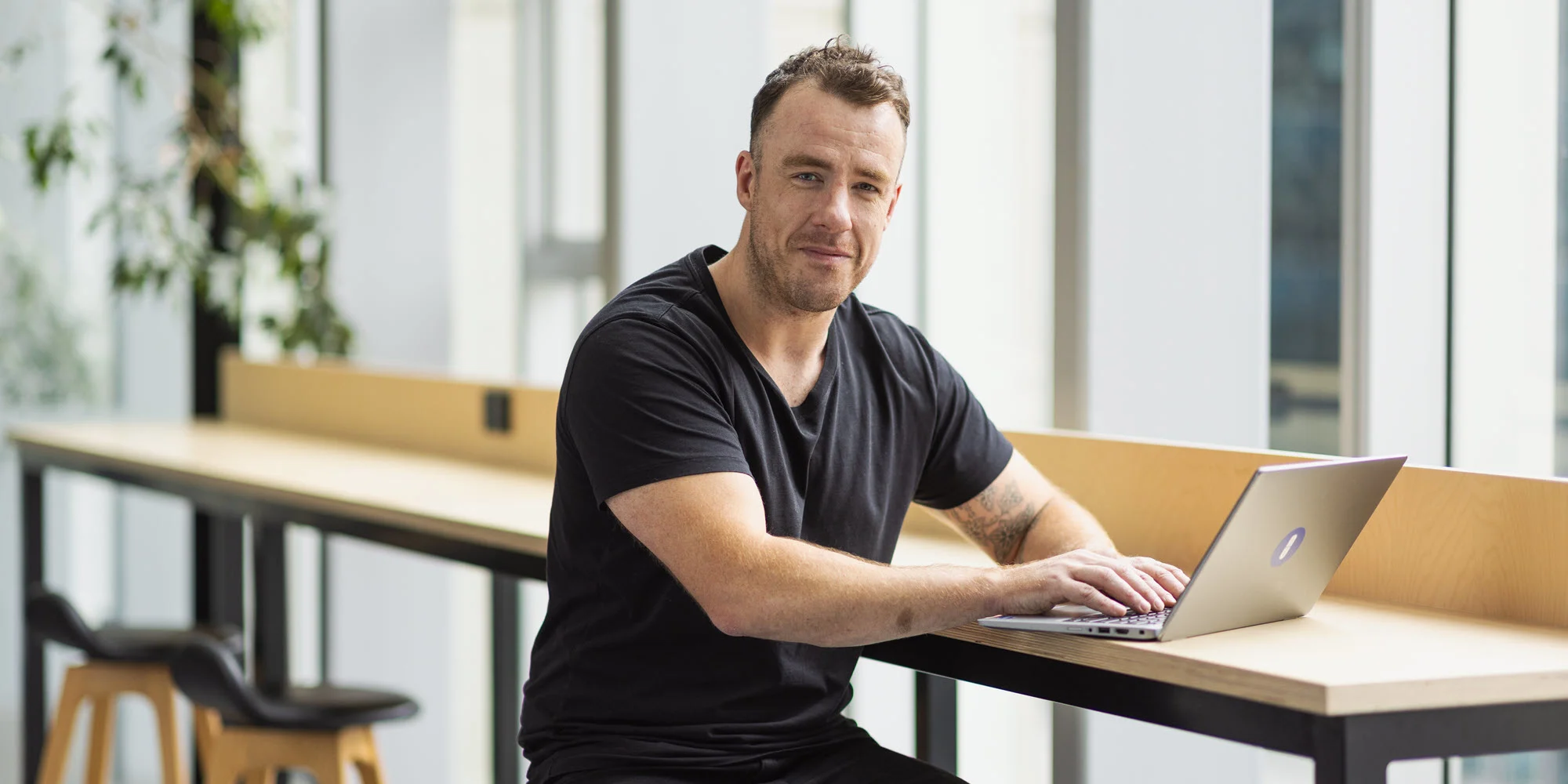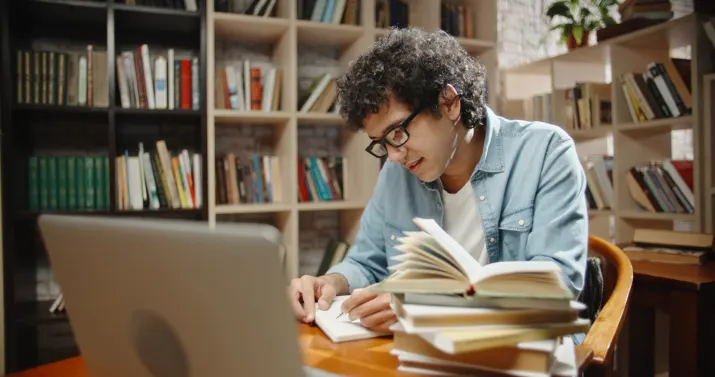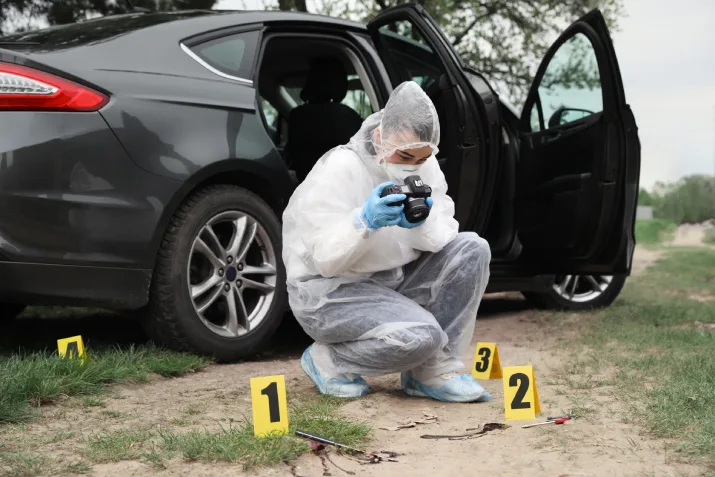How to become a police officer
Want to protect public safety and prevent crime? Here’s how to become a police officer in Australia.
Begin your policing career
Pathways to a career in policing vary from state-to-state, but here’s a general guide to get you started:
Complete your secondary school certificate or equivalent training if you’re under 21.
Hold a full driver’s licence.
Get a Level 1 First Aid Certificate with CPR.
Consider a TAFE or undergraduate criminal justice course, such as the Bachelor of Policing and Public Safety.
Go through the application process with the police force you would like to join (federal or state). You must pass a range of physical, mental, and aptitude tests to complete your police training, as well as traffic and background checks.
Study a postgraduate criminal justice or criminology degree to advance to more senior roles.
Discover criminal justice degrees
UndergraduateGRF-ART-DEG
Innovators, communicators and creators start here!
Develop critical thinking, writing, and research skills in demand across all industries. You can follow your passion with majors and electives that interest you. Develop connections through peer learning, networking, and work experience.
- Study method
- 100% online
- Duration
- 3 years full time or part time equivalent
- Entry requirements
- No ATAR required. Start with a subject.
Available majors
- Creative Writing,
- History and Society,
- Journalism,
- Literature and Culture,
- Strategic Communication
Bachelor of Psychology, Criminology and Justice
UndergraduateECU-PCJ-DEG
Prepare for a fascinating career in the criminal justice system
Learn how to use psychology to understand criminal behaviour. Explore the theories of criminology and get to know the major institutions of criminal justice in Australia. Graduate ready for meaningful roles in justice, police, and human services.
- Study method
- 100% online
- Duration
- 3 years full time or part time equivalent
Associate Degree of Criminology and Criminal Justice
UndergraduateUSQ-CCJ-ADG
Unlock entry to the criminal justice system
Learn about the Australian criminal justice sector. You’ll cover crime investigation, policing and more. Explore justice for groups like youth and minorities. Build professional skills. Think about criminals and victims.
- Study method
- 100% online
- Duration
- 2 years full time or part time equivalent
Undergraduate Certificate of Criminal Justice and Criminology
UndergraduateSWI-CJC-CTF
Start here for a career in criminal justice
Explore core concepts in criminal law and unpack the Australian legal system. In just 6 months, you’ll cover basic legal theory, aspects of crime, and law procedure. Gain credit for your studies and think about a future in criminal justice.
- Study method
- 100% online
- Duration
- 6 months full time or part time equivalent
Discover criminal justice subjects
Introduction to Criminology and Criminal Justice
UndergraduateGRF-CCJ113
- Study method
- 100% online
- Start dates
- Starts 2 Mar 2026, 2 Nov 2026
Mental Health, Psychology and the Criminal Justice System
UndergraduateGRF-CCJ110
- Study method
- 100% online
- Start dates
- Starts 13 Jul 2026, 2 Nov 2026
UndergraduateGRF-CCJ103
- Study method
- 100% online
- Entry requirements
- No ATAR required. Start with a subject.
- Start dates
- Starts 2 Mar 2026, 2 Nov 2026
Digital Futures: Crime, AI and Emerging Technologies
UndergraduateUNE-CRIM200
- Study method
- 100% online
- Start dates
- Starts 19 Oct 2026
What is a police officer?
The role of a police officer in Australia is to protect the public, maintain law and order, and prevent crime in the community. Keep in mind there are few steps to becoming a police officer in Australia, such as undergoing specific police training. Police officers must also be Australian citizens or permanent residents.
What does a police officer do?
As a police officer in Australia, your role will be diverse and vary from day to day. On one shift you may be the first responder to an accident or crime scene and in the next you may be providing evidence in court.
As a sworn officer, your duties may include:
Responding to community safety concerns.
Attending accidents, critical incidents, and emergencies.
Investigating crime and interview witnesses, suspects, and victims.
Enforcing traffic law.
Responding to drug and alcohol affected people.
Keeping a diary of the duties you perform and submitting paperwork on jobs you attend.
Attending court hearings and giving evidence when needed.
Attending community events, protests, and strikes.
Talking to and assisting vulnerable members of the community.
Police officer skills
As well as meeting the official requirements to be a police officer, it will help if you develop the following skills:
teamwork
conflict resolution
judgement and decision-making
strong communication
attention to detail
courage
first aid and CPR knowledge
physical fitness
Police officer salary
According to PayScale at the time of writing, the average salary for a police officer is $71,404 per year.
The exact amount will differ depending on which state or territory you work in.
Industry bodies
Need help making study choices for your career?

Need help making study choices for your career?
Our student advisors will turn your aspirations into a clear study path.
They'll help you with:
Choosing and enrolling in the right course for your desired career, including pathway options.
Mapping a study plan that allows you to balance work and home commitments.
Understanding eligibility for funding, including HECS-HELP loans.
Get unbiased advice at no cost today.
Looking for other ways to start the conversation? Contact us
Step up your career with these resources

6 facts you need to know about studying law online
We debunk your misconceptions and highlight the unique opportunities available to you when you study law online.

3 fascinating forensics jobs in Australia
Thinking about forensics as a career? For true crime junkies and self-confessed science geeks with a penchant for justice, it might seem like the perfect choice. But what does it take to work in forensics, and what jobs are on offer in Australia?

What area of law should I practice?
Law is a fascinating field to study—and provides many different areas in which you can specialise. Have you considered these areas of practice?

What is a Juris Doctor?
Thinking about switching into the legal field? If you already have a qualification, then you should consider studying a Juris Doctor. Here’s everything you need to know about this graduate-level course.